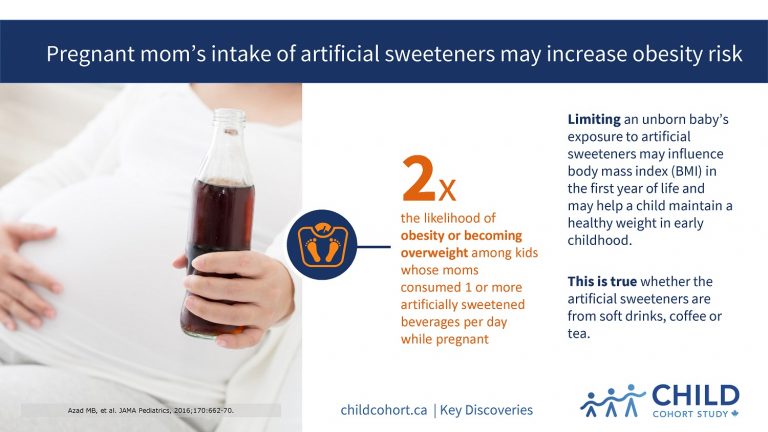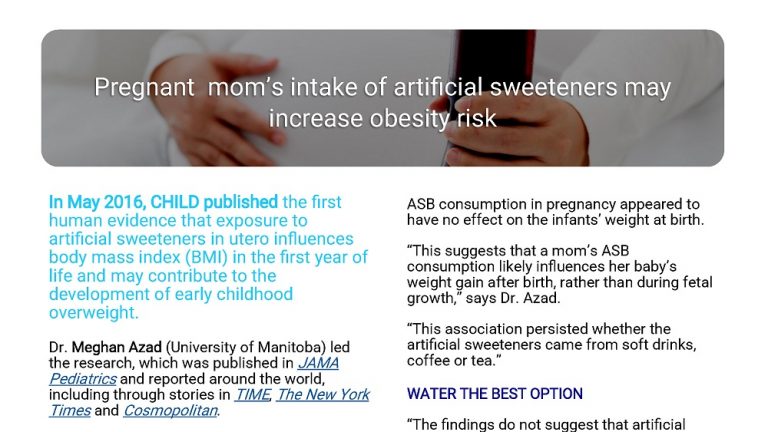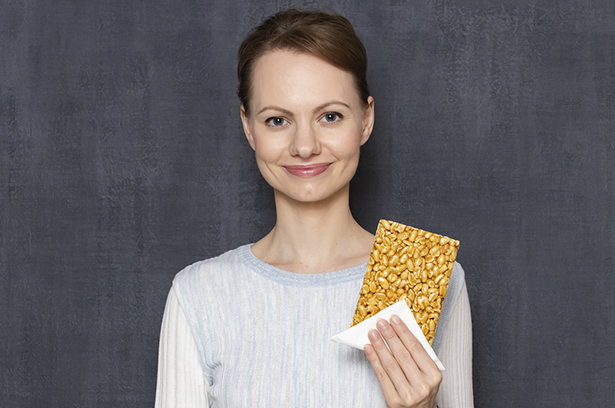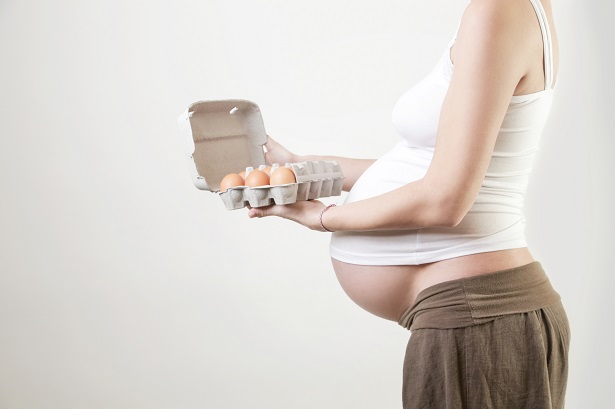Pregnant mom’s intake of artificial sweeteners may increase obesity risk
In May 2016, CHILD published the first human evidence that exposure to artificial sweeteners in utero influences body mass index (BMI) in the first year of life and may contribute to the development of early childhood overweight.
Dr. Meghan Azad (University of Manitoba) led the research, which was published in JAMA Pediatrics and reported around the world, including through stories in TIME, The New York Times and Cosmopolitan. It also informed an international guideline on non-sugar sweeteners issued by the World Health Organization, a specialized agency of the United Nations and leading global health body.
WHO’S THE BAD GUY?
“Typically, we think of sugar as the ‘bad guy,’” says Dr. Azad, who is Deputy Director of CHILD and former co-leader of the Study’s Manitoba site.
“It turns out that replacing sugar with artificial sweeteners in pop, or even in coffee and tea, may not be such a good idea. If a mom consumes diet drinks on a daily basis during her pregnancy, it could have an impact on her baby’s weight.”
As part of the study, over 3,000 expectant mothers participating in CHILD answered questions about what they ate and drank during pregnancy, and their babies were studied a year after birth.
Moms who reported consuming one or more artificially sweetened beverages (ASB) per day during pregnancy were twice as likely to have children that were overweight or obese at one year, compared to women who avoided these beverages.
ASB consumption in pregnancy appeared to have no effect on the infants’ weight at birth.
“This suggests that a mom’s ASB consumption likely influences her baby’s weight gain after birth, rather than during fetal growth,” says Dr. Azad.
“This association persisted whether the artificial sweeteners came from soft drinks, coffee or tea.”
RISK PERSISTS, LINKED TO GUT BACTERIA
Subsequent research by Dr. Azad and colleagues found these same children also at risk of obesity by age three, and confirmed the association between artificial sweeteners and obesity risk in studies using mice and cell cultures.
In a third study, they used CHILD data again to reveal that the association appears to arise from how these sweeteners affect the infant gut microbiota—the community of bacteria living in a baby’s digestive system—as well as the infant’s metabolism.
WATER THE BEST OPTION
The findings do not suggest that artificial sweeteners cause obesity in children, according to Dr. Azad, but they do support previous research that found similar links between sugar substitutes and health issues, including weight gain, in animal and human studies.
Until further research provides more definitive answers, Dr. Azad advises: “When you’re pregnant, unsweetened drinks like water are likely the best option.”





